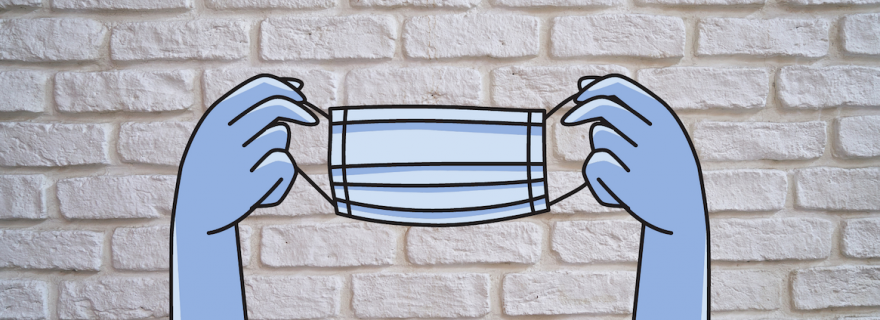Online University and the Student Response Unit: students take the lead in the fight against the Pandemic Wall effects
Stress and uncertainty from the COVID-19 pandemic caused a spike in mental health concerns among young people studying and working online. How can youth-led initiatives be the solution to the growing demand for concise guidelines on the best practices during remote studying and working?
Pandemic wall and mental health in young people
Since the outbreak of the COVID-19 pandemic in March 2020, health concerns have monopolised the news. At first, these concerns were centred around the virus and the lack of treatment for it and later they turned into hospitals’ stock of oxygen and ICU beds. As months passed, the struggle to adapt to the new reality of working and studying online, the loss of jobs and economic difficulties have brought mental health to the spotlight. Early surveys investigating the mental health toll of the ongoing situation provided data on the high cost of the pandemic in people’s wellbeing.
Young people (18-25) registered the worst spike in mental health issues. Studies across British, American and European universities show alarming percentages of students reporting sadness, depression and anxiety due to uncertainty towards the future, and feelings of loneliness because of social restrictions and the lack of face-to-face contact. In a study at a public university in the USA, 89% of students had problems concentrating, 86% suffered from disruption of sleep patterns and 82% were worried about their academic performance during the pandemic. These inter-connected feelings have commonly been described in the news as the “pandemic wall”, and many of us are hitting it as we approach the anniversary of the first lockdown.
The common conclusion to which all studies arrived was that the coping mechanisms offered to university students were not enough, and that new methodologies had to be developed to treat the current crisis in mental health. Young people are increasingly encouraged to reach out for help when they need it, but oftentimes the resources have not been properly developed or put in place.
The Project
DontBeATurtle is a student-led project with the objective of creating a place where online students and work from home (WFH) professionals find useful information on how to best navigate through these strange online times. It was developed by the Student Response Unit (SRU), a group formed by Crisis and Security Management Master students.
The focus of DontBeATurtle is to improve the experience of remote study/work and to connect with people in a similar situation to inspire positivity. The provoking title comes from the nature of the tips offered and the attempt to prevent students from turning into turtles due to their lack of movement and shield-like isolation. The three topics that inspired the project were:
- A comfortable and healthy desk environment,
- Exercise and connect,
- Time management and scheduling.
With each of these, we offered a series of recommendations to improve efficiency through a comfortable desk setup, tips to maintain a healthy balance in our routines and techniques to boost concentration. After a careful research, we put together guidelines for those looking to improve their wellbeing during the pandemic. The initiative was based on the premise that people should focus on the things they have control over instead of stressing about external factors we cannot change.
Once these initial points were addressed, the project adopted a schedule of sharing specific content on each day of the week. Mondays being for Meditation, Wednesdays for Wellbeing, Fridays for Fun and Sundays for Audio Learning. Aimed at a young audience, our content is shared across Instagram, Twitter and Linkedin.
Initiative from the youth to the youth
During a Crisis Preparedness lecture we discussed the future of students currently struggling to maintain their motivation while working online. We realised the crisis was not limited to the spread of the virus and collapsing hospitals, it also affected our own environment. The pandemic exhaustion and uncertainty caused symptoms we related to, but we did not know where to find advice for. So, we decided to create it.
University is often synonymous with change and challenges, thus added stressors can have a high impact on students. Encouraging young people to participate is the best way to ensure solutions are tailored to the needs of students and remote workers and hence effective. The SRU aims to provide tools to best adapt to the new normal based on the idea that youth-led initiatives are what our communities need right now.
Behind the SRU team are eight MSc students of Crisis and Security Management at Leiden University for whom crisis has become one of the main topics of conversation. We are all in our early twenties and come from the Netherlands, France, Belgium and Spain, making the group a European dream team. Based on our research and recommendations we hope to help other students and remote workers make the best out of this situation. We hope to see you in our community soon!
Student Response Unit.
Lotte Aartman, Monica Herrera Perez-Angulo, Claire Ruiz Le Moing, Sanne Swart, Marleen Valkenburg, Anne van Diepen, Cedric van Goethem and Marieke van Unen.

